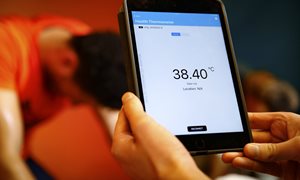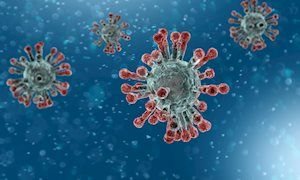 Coen Bongers, Thijs Eijsvogels, Maria Hopman and colleagues published an article in Physiological Reports on the effects of acute versus prolonged exercise and dehydration on kidney function and kidney damage in healthy young adults.
Coen Bongers, Thijs Eijsvogels, Maria Hopman and colleagues published an article in Physiological Reports on the effects of acute versus prolonged exercise and dehydration on kidney function and kidney damage in healthy young adults.
abstract
Exercise and dehydration may be associated with a compromised kidney function and potential signs of kidney injury. However, the kidney responses to exercise of different durations and hypohydration levels are not yet known. Therefore, we aimed to compare the effects of acute versus prolonged exercise and dehydration on estimated glomerular filtration rate (eGFR) and kidney injury biomarkers in healthy male adults. A total of 35 subjects (23 ± 3 years) were included and invited for two study visits. Visit 1 consisted of a maximal cycling test. On Visit 2, subjects performed a submaximal exercise test at 80% of maximal heart rate until 3% hypohydration. Blood and urine samples were taken at baseline, after 30 min of exercise (acute effects; low level of hypohydration) and after 150 min of exercise or when 3% hypohydration was achieved (prolonged effects, high level of hypohydration). Urinary outcome parameters were corrected for urinary cystatin C, creatinine, and osmolality. Subjects dehydrated on average 0.6 ± 0.3% and 2.9 ± 0.7% after acute and prolonged exercise, respectively (P < 0.001). The eGFRcystatin C did not differ between baseline and acute exercise (118 ± 11 vs. 116 ± 12 mL/min/1.73 m2 , P = 0.12), whereas eGFRcystatin Cwas significantly lower after prolonged exercise (103 ± 16 mL/min/1.73 m2 , P < 0.001). We found no difference in osmolality corrected uKIM1 concentrations after acute and prolonged exercise (P > 0.05), and elevated osmolality corrected uNGAL concentrations after acute and prolonged exercise (all P-values < 0.05). In conclusion, acute exercise did barely impact on eGFRcystatin C and kidney injury biomarkers, whereas prolonged exercise is associated with a decline in eGFRcystatin C and increased biomarkers for kidney injury.
publication
Impact of acute versus prolonged exercise and dehydration on kidney function and injury.
Bongers CCWG, Alsady M, Nijenhuis T, Tulp ADM, Eijsvogels TMH, Deen PMT, Hopman MTE.
Coen Bongers and Thijs Eijsvogels are both members of theme Vascular damage. Maria Hopman is member of theme Mitochondrial diseases.
Related news items

Grants for heart and kidney research Two awards to Radboudumc in Open Competition ENW-XS
21 July 2022Two researchers from the Radboudumc receive a grant from the NWO within the Open Competition of the Exact and Natural Sciences. They are Thijs Eijsvogels, who studies the heart, and Pieter Leermakers, who studies the kidneys.
read more
Your heart rate as a thermometer Research Olympic athletes will be followed up during 4Daagse
18 July 2022Body temperature can be determined from heart rate. This is what research by the Radboudumc among Olympic athletes shows. Athletes can use this method during training to eventually perform better in the heat. The technique is now being further investigated among participants in the 4Daagse.
read more
Young Investigator Award for Esmée Bakker
14 April 2022 Esmée Bakker received the Young Investigator Award for her abstract ‘Acute and long-term mortality rates among participants of mass-participation sports events versus the general population.’ read more
Esmée Bakker obtained a Marie Skłodowska-Curie grant
29 March 2022 Esmée Bakker obtained a Marie Skłodowska-Curie European Postdoctoral Fellowships (160k) of the Horizon 2020 of the European Union. read more
Cooling strategies for COVID-19 health personnel to attentuate PPE-induced heat strain
11 June 2020 Radboudumc develops infographic with cooling information read more
